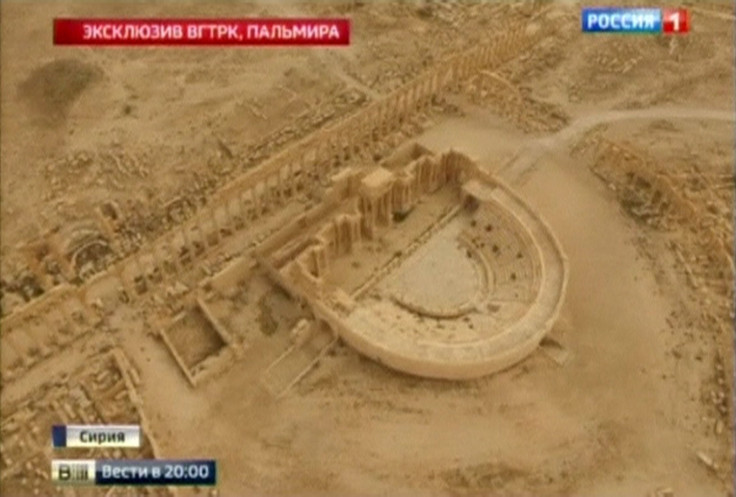Russian Officials, State Media Trumpet Re-Capture Of Ancient Palmyra

MOSCOW — Russian officials and state-owned media Monday hailed the re-capture of the ancient city of Palmyra by Syrian government troops, supported by Russian air power, as a key victory over the Islamic State group — also called ISIS — and a turning point in Syria’s civil war.
“Palmyra is the key to the whole of central Syria. For Islamic State the loss of Palmyra is a terrible blow… without Russian support this victory would have been impossible,” said an article in Komsomolskaya Pravda newspaper Monday.
Russian aircraft and special forces deployed on the ground were heavily involved in the battle for the city, and President Vladimir Putin phoned his Syrian counterpart Bashar Assad Sunday to congratulate the latter for the victory.
The Kremlin’s military involvement in Syria has returned Russia to the center of international diplomacy over the bloody war in the Middle East and a series of Western leaders, including U.S. Secretary of State John Kerry and German Foreign Minister Frank-Walter Steinmeier, have visited Moscow in recent days.
“Syrian soldiers never stopped believing in victory,” claimed a report from a correspondent embedded with the Syrian army that was shown on Channel One, a Russian state-owned television channel, Monday. The report also included footage of Russian attack helicopters bombarding ISIS positions around Palmyra.
Nationalist firebrand politician Vladimir Zhirinovsky told the LifeNews tabloid that Palmyra was the “Syrian Stalingrad” — a reference to the pivotal battle in World War II when the erstwhile Soviet Union repelled a Nazi attack on a key Russian city with huge losses on both sides.
While the end of the battle for Palmyra was extensively reported in Russia, the heads of several leading Kremlin-friendly media outlets complained that Western media was ignoring the recapture of the city.
“Half of them [Western media outlets] do not know what Palmyra is. Another third do not know the sites of world culture. And the rest are lying,” Margarita Simonyan, chief of the Kremlin-controlled English language television channel RT, wrote on Twitter Monday.
“It’s like American media have had their mouths sewn shut. That’s freedom!” the publisher of Kremlin-friendly Izvestiya newspaper Aram Gabrelyanov tweeted.
Despite the Kremlin’s announcement of a drawdown of Russia’s military presence in Syria earlier this month, Russian troops were heavily engaged in the fighting for Palmyra. The Russian Defense Ministry said Sunday that Russian aircraft had flown 40 sorties in the last 24 hours, and Russian officials confirmed the death of a Russian special forces officer near Palmyra last week.
“Putin again underlined that, despite the withdrawal of the main part of the Russian military force from Syria, Russia’s military will continue to help the Syrian authorities with the struggle against terrorism and with the liberation of their territory from extremist groups,” Putin’s press spokesman Dmitry Peskov said Sunday in the wake of Putin’s conversation with Assad.
Russian state-owned television showed some of the first footage of the ancient site of Palmyra, which was significantly damaged by ISIS fighters during their 10-month occupation of the world famous archeological site.
The Kremlin said Sunday that Putin spoke with Irina Bokova, head of Unesco, and that they discussed the situation in Syria. Bokova reportedly said she welcomed the involvement of the State Hermitage, Russia’s leading museum, in the preservation and restoration of ancient Palmyra.
© Copyright IBTimes 2025. All rights reserved.






















